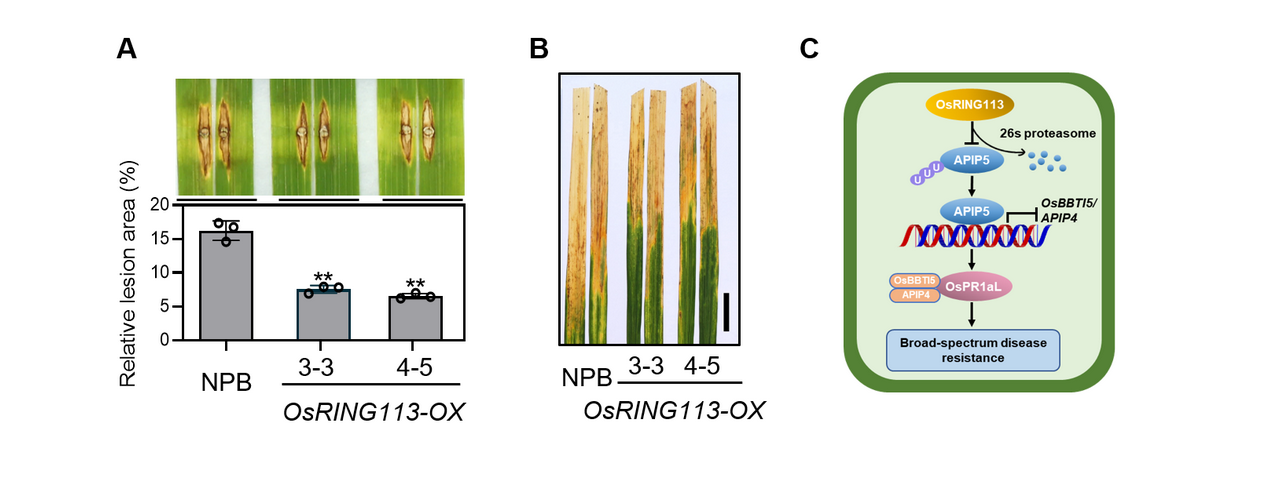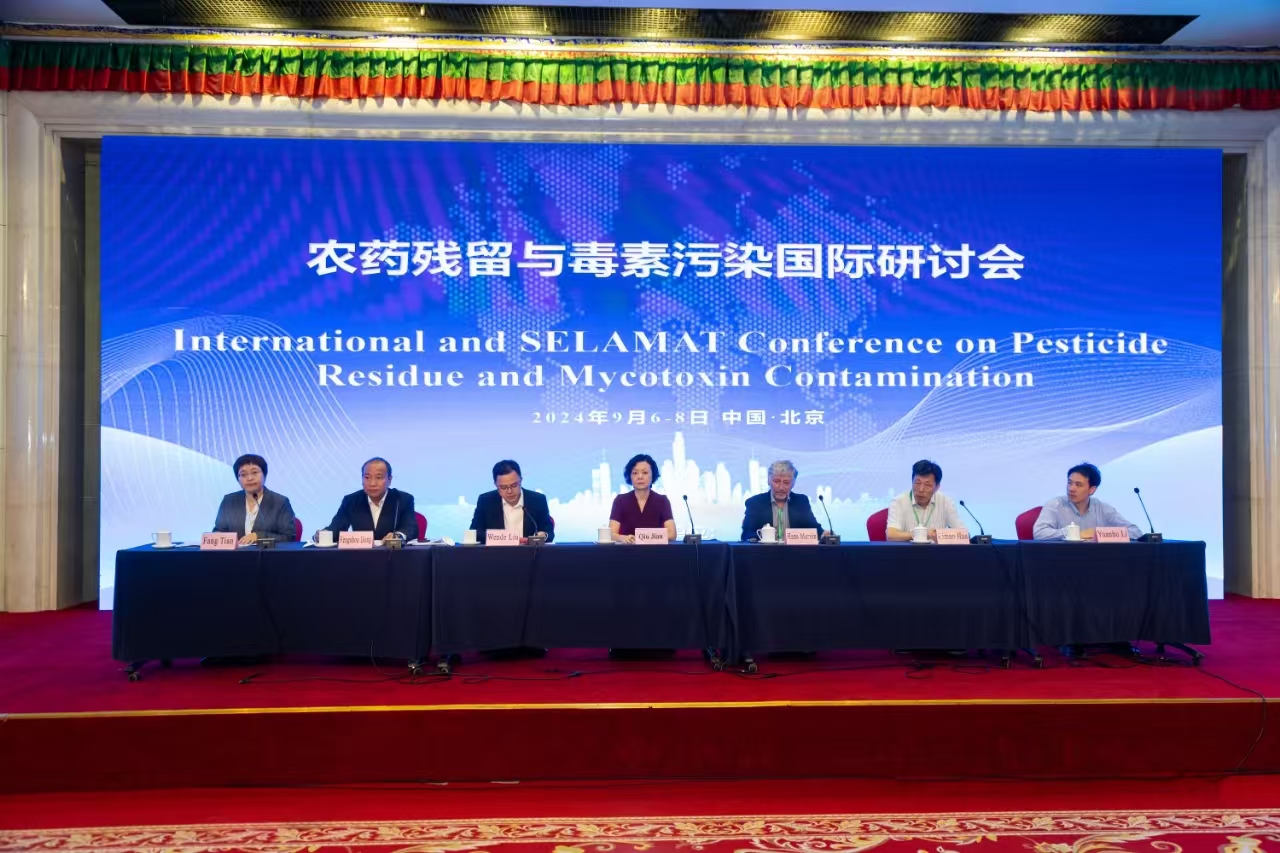A novel mechanism of E3 ubiquitin ligase-transcription factor module that enhances broad-spectrum disease resistance in rice revealed by the Institute of Plant Protection
The Crop Pathogen Functional Genomics Innovation Team at the Institute of Plant Protection, Chinese Academy of Agricultural Sciences (IPPCAAS), recently published a research paper titled "The rice E3 ubiquitin ligase-transcription factor module targets two trypsin inhibitors to enhance broad-spectrum disease resistance" in the journal Developmental Cell. This study reports a novel mechanism by which the E3 ubiquitin ligase OsRING113-transcription factor APIP5 module regulates broad-spectrum disease resistance in rice by targeting trypsin inhibitors.
Rice is a crucial global food crop, but diseases like blast disease caused by Magnaporthe oryzae and bacterial blight caused by Xanthomonas oryzae pv. oryzae threaten rice production. Identifying disease-resistant genes in rice and understanding their molecular mechanisms is essential for breeding resistant varieties and developing new disease control strategies. In previous studies, the team discovered that the transcription factor APIP5 is a key regulatory factor acting downstream of the disease-resistant protein Piz-t (Wang et al., 2016 Current Biology). APIP5 primarily inhibits the expression of the phenylalanine metabolic gene cluster at the transcriptional level and suppresses blast disease resistance by promoting mRNA degradation of small G protein genes at the post-transcriptional level (Fang et al., 2021 Science Bulletin; Zhang et al., 2022 Nucleic Acids Research). However, the regulation mechanism of APIP5 protein stability remains unclear.
This study revealed that the APIP5 protein is degraded by the 26S proteasome system. Through screening with an E3 ubiquitin ligase library (UbE3), the team identified that the E3 ubiquitin ligase OsRING113 targets APIP5. Ubiquitination analysis showed that OsRING113 promotes the degradation of APIP5 through K48-linked polyubiquitination. Overexpression of OsRING113 in rice enhanced broad-spectrum resistance to blast disease and bacterial blight without affecting normal rice growth. RNA-seq analysis indicated that OsRING113 overexpression and apip5 mutants have similar transcriptional regulation patterns. Additionally, it was found that the transcription factor APIP5 represses the expression of Bowman-Birk trypsin inhibitor genes OsBBTI5 and APIP4. Genetic analysis demonstrated that OsBBTI5 and APIP4 positively regulate resistance to blast disease and bacterial blight in rice by promoting the accumulation of pathogenesis-related protein OsPR1aL. This study elucidated a hierarchical regulatory mechanism of E3 ubiquitin ligase-transcription factor-trypsin inhibitors-pathogenesis-related proteins that contribute to broad-spectrum disease resistance in plants, providing a valuable theoretical foundation and candidate genes for breeding new disease-resistant crop varieties.

The first author of this study is Dr. Zhang Chongyang, jointly trained by IPPCAAS and the Shenzhen Institute of Agricultural Genomics. Yuese Ning, from IPPCAAS, serves as the corresponding author of the paper. This research was funded by the National Natural Science Foundation of China and the Agricultural Science and Technology Innovation Program of the Chinese Academy of Agricultural Sciences.
-
 China-Laos Training Workshop on Integrated Management of Destructive Crop Pests and Diseases Successfully held in Laos
China-Laos Training Workshop on Integrated Management of Destructive Crop Pests and Diseases Successfully held in Laos -
 New Plant Protection: New challenge and new opportunity for plant protection
New Plant Protection: New challenge and new opportunity for plant protection -
 International and SELAMAT Conference on Pesticide Residue and Mycotoxin Contamination Held in Beijing
International and SELAMAT Conference on Pesticide Residue and Mycotoxin Contamination Held in Beijing -
 CAAS President Meets Chairman of ASEAN FAW Taskforce
CAAS President Meets Chairman of ASEAN FAW Taskforce
